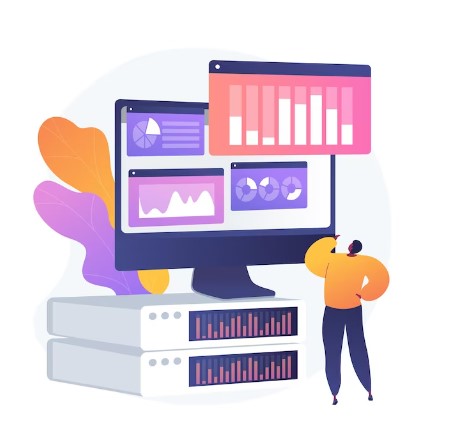What is Database Management System
A database management system (DBMS) is a software system that is used to manage, organize, and store large amounts of data. It provides an interface for users to interact with the database, allowing them to add, modify, delete, and retrieve data.
A DBMS typically includes tools for data entry, data validation, and data retrieval, as well as tools for backup and recovery, security, and performance tuning. It allows multiple users to access and manipulate the same data simultaneously, while also ensuring data integrity and consistency.
There are many different types of DBMSs, including relational, object-oriented, and NoSQL systems. Relational databases are the most common type of DBMS and use tables to organize data into rows and columns, with relationships between tables established using keys. Object-oriented databases, on the other hand, organize data into objects that can have properties, methods, and relationships with other objects. NoSQL databases, which stands for “not only SQL,” are a newer type of database that are designed to handle large volumes of unstructured or semi-structured data, such as social media feeds or log files.
Here are some key factors to consider when choosing a DBMS:
Choosing the right database management system (DBMS) for your organization can be a complex task, as there are many factors to consider.
- Data volume and complexity: Consider the amount of data you will be storing, as well as the complexity of the data. For small to medium-sized datasets with structured data, a relational DBMS may be sufficient. For larger datasets with more complex or unstructured data, a NoSQL DBMS may be a better choice.
- Performance: Consider the performance requirements for your organization’s database. Some DBMSs are optimized for high read or write throughput, while others are optimized for handling large volumes of data.
- Scalability: Consider the future growth and scalability of your organization’s data needs. Some DBMSs are more scalable than others, and may be better suited to growing datasets.
- Integration: Consider how the DBMS will integrate with your organization’s existing software and systems. Some DBMSs are designed to integrate seamlessly with specific software or programming languages.
- Security: Consider the security requirements for your organization’s data. Some DBMSs have more robust security features than others, and may be better suited for sensitive or confidential data.
- Cost: Consider the cost of the DBMS, as well as any ongoing maintenance or support costs.
Ultimately, the choice of DBMS will depend on the specific needs and requirements of your organization. It may be helpful to consult with a database expert or IT professional to help evaluate your options and make an informed decision.
